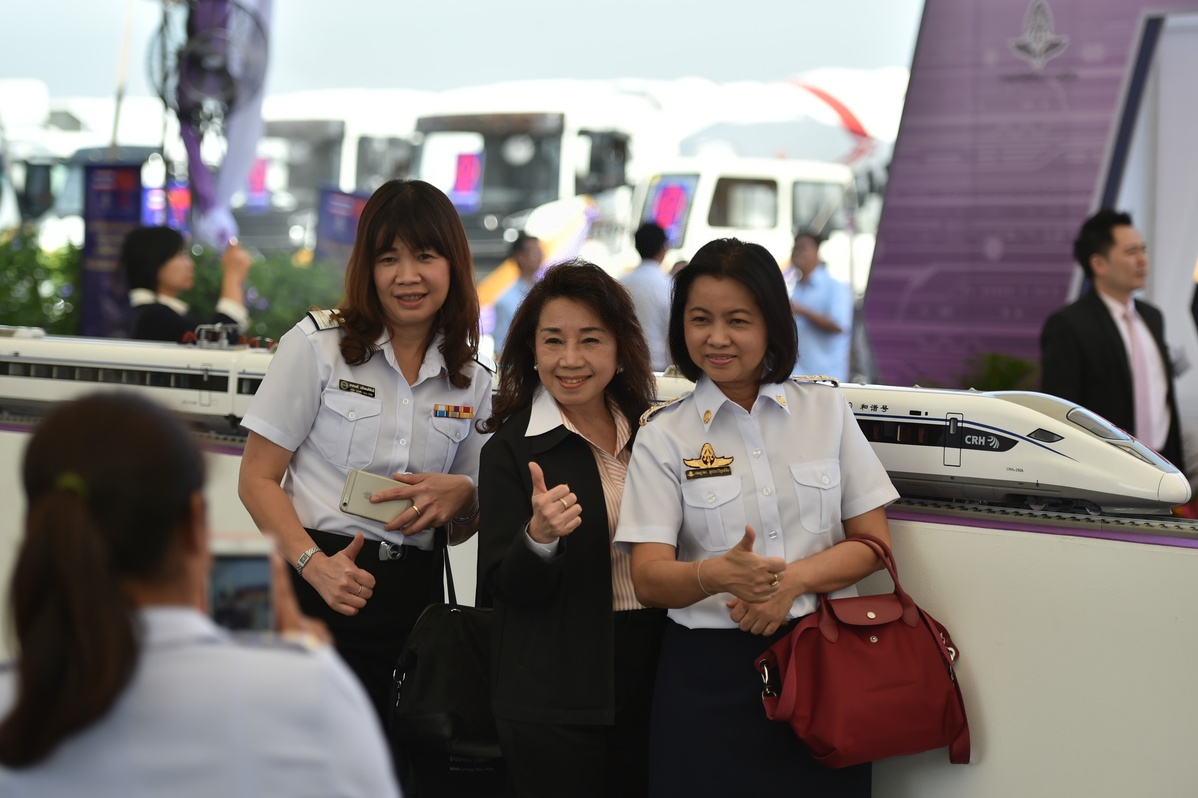Youth's pursuit of childhood dream spotlights Sino-Thai rail ties
2019-05-28 09:13:09
BANGKOK - Anupat Tiprat, 21, has been dreaming of becoming a train driver in his home country Thailand. In coming weeks, he will travel to northern Chinese city of Tianjin to learn train maintenance and driving for three years.
"I love trains, my grandma took me to travel by train when I was a kid," Anupat said outside a shabby yet colorful house in Hua Hin district of Prachuap Khiri Khan province, where he lives with his parents.
Anupat was born in 1998 in Si Nakhon district of northern province Sukhothai, where his grandmother, Somneuk Srikeud, has been living. Not long after his birth, his parents left him with his grandmother and headed south for work.
Train thus became the bond that linked young Anupat with his parents. Young Anupat became a super fan of trains then. He painted trains on the walls of his grandmother's house and he lined up bottles to make them look like a train.
When he turned 11, he moved from Si Nakhon to Hua Hin to reunite with his parents, when the family rented a house not far away from the Hua Hin train station.
Every day after school, he would go to the station to look at the inbound and outbound trains. He said he used to sit at the place where the locomotive would stop and ask the driver "How can I be someone like you?"
Later, he began to know that one has to enter the Railway Technical School of the State Railway of Thailand to become a driver but he lost his chance.
The Railway Technical School admits only a few students, and applicants must have graduated from Territorial Defense School while Anupat, who went to a normal vocational school, did not meet their requirements.
"I realized that maybe I cannot learn train driving anymore, the path was totally stuck and I felt I didn't have any chance to become a train driver in my life."
As a freshman of a vocational college, Anupat dropped out and went to work on construction sites.
After the China-proposed Belt and Road Initiative was put forward, China and Thailand signed an agreement on railway cooperation in 2014.
In December 2017, Thailand and China jointly inaugurated the construction of Thailand's first high-speed railway from Bangkok to northeastern province of Nakhon Ratchasima.
Since 2015, several Chinese railway vocational colleges and Thai vocational colleges along with Confucius Institutes in Thailand have worked together to foster future railway talents, engineers for the China-Thailand high-speed railway cooperation projects.
Working as a construction laborer in January 2018, Anupat noticed a poster on a social media platform that Banphai Industrial and Community Education College in Ban Phai district of Khon Kaen province was admitting students who would get Chinese scholarships for rail-related majors.
Anupat then contacted Junyar Pabu, the director of the college, who explained the project and encouraged him to pursue his dream.
Pabu recommended Anupat attend an exam held by the Maritime Silk Road Confucius Institute together with Tianjin municipality in order to attain a full scholarship for a three-year certificate study.
A short-term study in China's Wuhan that Anupat had undertaken earlier became his advantage in competing with other Thai students.
Thailand has no high-speed rail now, but the construction of the Bangkok-Nakhon Ratchasima high-speed railroad, which applied Chinese highspeed rail technology, has already begun and the second high-speed railroad that links Bangkok's two airports with U-Tapao Rayong-Pattaya International Airport is to follow.
According to a document released by Thai ministry of transport, the government plans to build 2,506 km of high-speed railroads by 2037, which, if implemented, would need many high-speed train drivers in the future.
